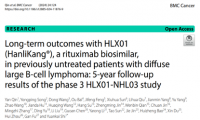-
【EXPERT Q&A】What are the procedures for exporting medical devices to Japan?
- Source: drugdu
- 620
- January 29, 2024
-
New Tests to Help Predict Disease Progression in Ulcerative Colitis
- Source: drugdu
- 362
- January 27, 2024
-
First of Its Kind Software Uses AI and ML for Personalized Disease Prediction
- Source: drugdu
- 357
- January 27, 2024
-
Bladder Cancer Therapies Developer Raises $380M in the First Biotech IPO of 2024
- Source: drugdu
- 293
- January 27, 2024
-
Key Trends from the 2024 J.P. Morgan Healthcare Conference
- Source: drugdu
- 361
- January 27, 2024
-
With record year, Samsung Biologics bucks CDMO industry’s troublesome 2023
- Source: drugdu
- 257
- January 27, 2024
-
Apotex, Heritage and Breckenridge settle with purchasers in generics price-fixing case
- Source: drugdu
- 362
- January 27, 2024
-
Announcement of Gan & Lee Pharmaceuticals Receiving Bolivian Drug Registration Approval for Menthol Insulin Injection
- Source: drugdu
- 449
- January 27, 2024
your submission has already been received.
OK
Subscribe
Please enter a valid Email address!
Submit
The most relevant industry news & insight will be sent to you every two weeks.

















